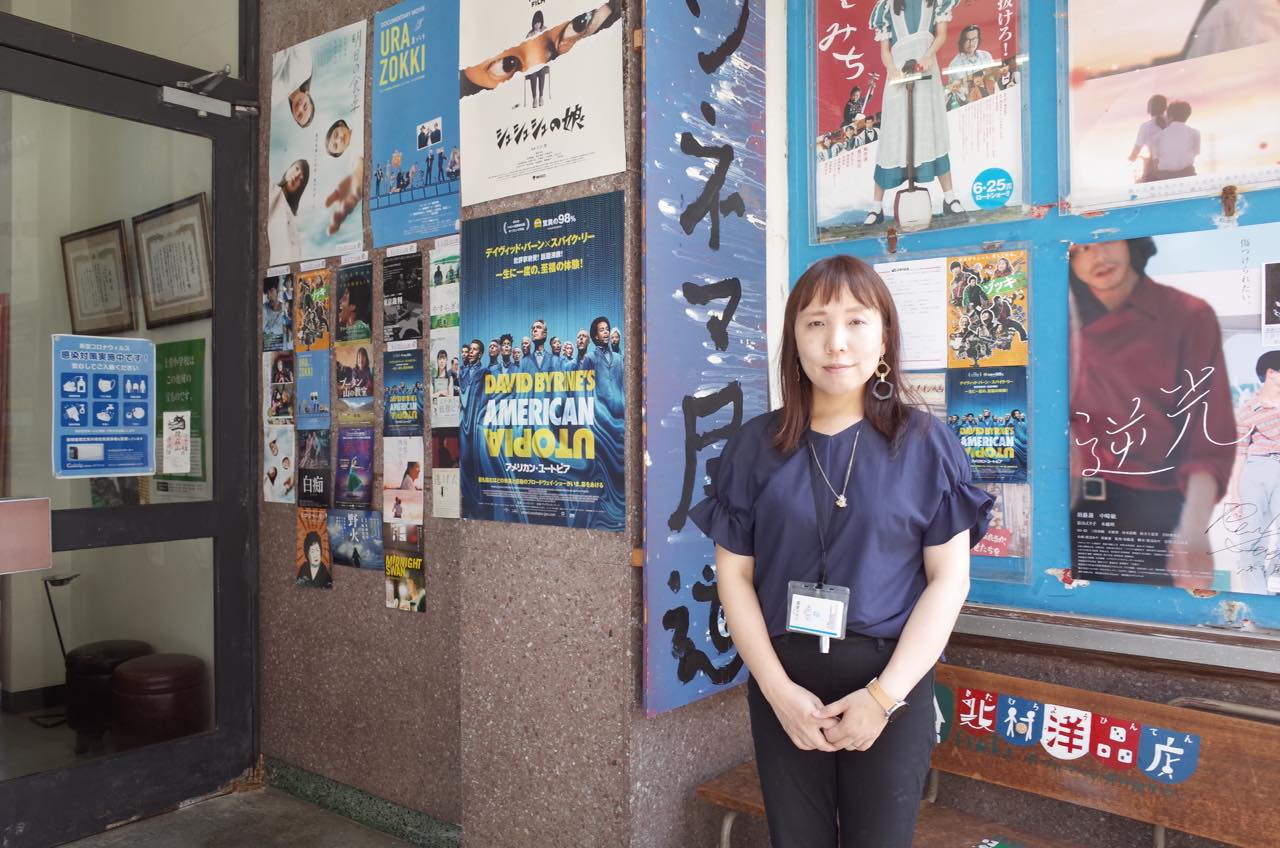
VOL.3 Cinema ONOMICHI, the Symbol of a Creative Town
For culture enthusiasts, Onomichi is synonymous with “Cinema Onomichi.” What is it about this small cinema, deeply rooted in the daily lives of Onomichi’s residents, that draws people in? We spoke with Seijun Kawamoto, the beloved manager of Cinema Onomichi, who is also cherished by filmmakers.
Onomichi, the city of movies. At its peak, there were about 20 movie theaters, but by 2001, they were all gone. This happened just as Kawamoto, the manager of Cinema Onomichi, had returned from Kyoto.
“I was proud of Onomichi as a city of movies, so it was very frustrating and sad that there were no theaters. With a simple desire to create one, I established Cinema Onomichi. The reason the theaters disappeared was that people unconsciously distanced themselves from movies. It was quite a struggle to regain the community’s awareness. To actually run the theater, it was crucial to strengthen and elevate the town’s cultural consciousness.”
It’s Our Own Theater
To achieve this, we carried out a fundraising campaign. It was possible to build the theater with corporate investments and subsidies, but we deliberately chose not to. We wanted the theater to be ‘the community’s theater.’ Even if they contributed just one yen, feeling that ‘I built this theater’ would be the first step to raising the community’s cultural awareness.
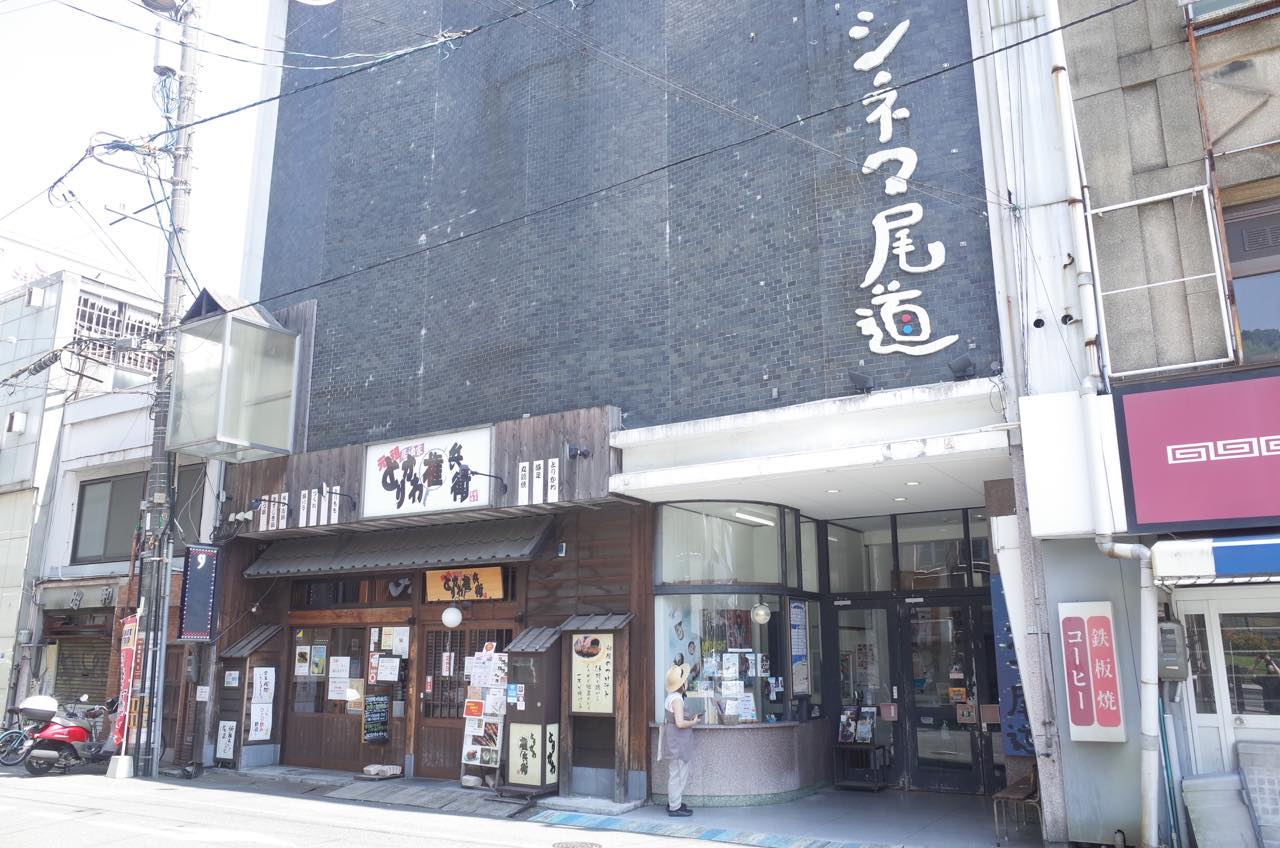
“Revitalizing the community’s awareness of movies and culture… That’s what’s important to me, both when creating and now operating the theater.”
The word “revitalize” used by her suggests that the people of Onomichi have always had a high interest in movies and culture.
“I felt that people wanted to watch movies in this town, that they thought it would be good to have a theater, and that they wanted to engage with cultural activities. That’s why, even in a town with such a small population and economic scale, the theater has been able to operate for 13 years. I believe the revival of interest in culture has been achieved.”
The people of Onomichi’s passion for culture seems to be more about their love for “Onomichi as a cultural town.”
“Onomichi has an incredibly strong sense of local pride. That’s connected to the desire to preserve the town’s culture. Onomichi is a town with many festivals. Even during the COVID-19 pandemic, they were scaled down but still continued, and traditional things were well-preserved. This correlates with the town’s cultural power and cultural level. Many people live with a constant awareness of how they can contribute to Onomichi or how to enjoy living in this town. I think that’s a core part of Onomichi’s spirit.”
Kawamoto herself is also from Onomichi. Through the interview, I felt his strong love and passion for the town. Just having a strong passion is already attractive. In an era where strong passions are rare enough to become content themselves, such as “obsessions” and “favorites,” the strong local love here must be why the town feels so energetic. As someone from Tokyo, I can only say I envy that.
Cinema Onomichi, the Creative Hub
She often hears directors and other creators say they want to visit Onomichi. Looking at the schedule, it seems there are significantly more stage greetings and talk shows here compared to theaters in Tokyo.
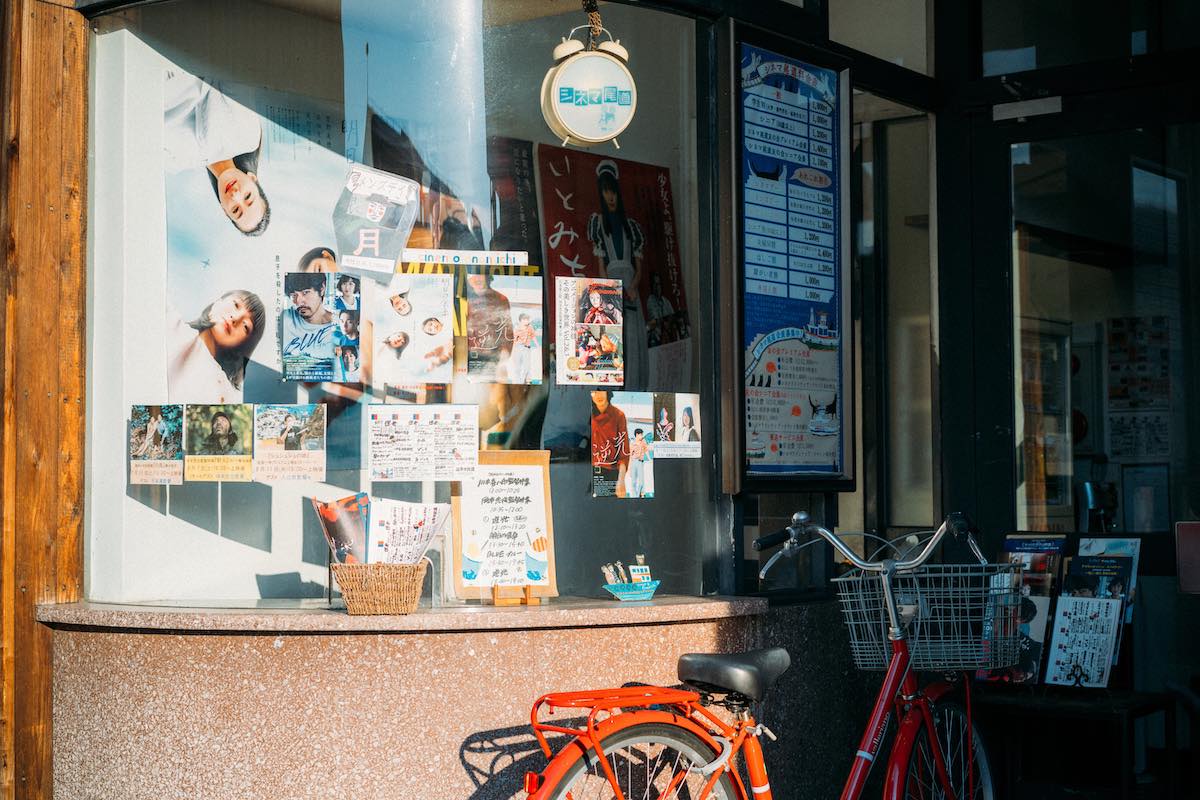
“Many people are influenced by Nobuhiko Obayashi’s work or the image of Yasujiro Ozu’s ‘Tokyo Story.’ There are so many elements in this town that have inspired creative people, so many want to visit at least once. And after their first visit, they like it so much that they return repeatedly.”
Kawamoto often hosts guests before and after stage greeting events.
“I show them around, share meals, and talk about various things. I also get to hear their thoughts on their work, which they might not share during stage greetings. I think this kind of communication makes Onomichi an even more approachable town.”
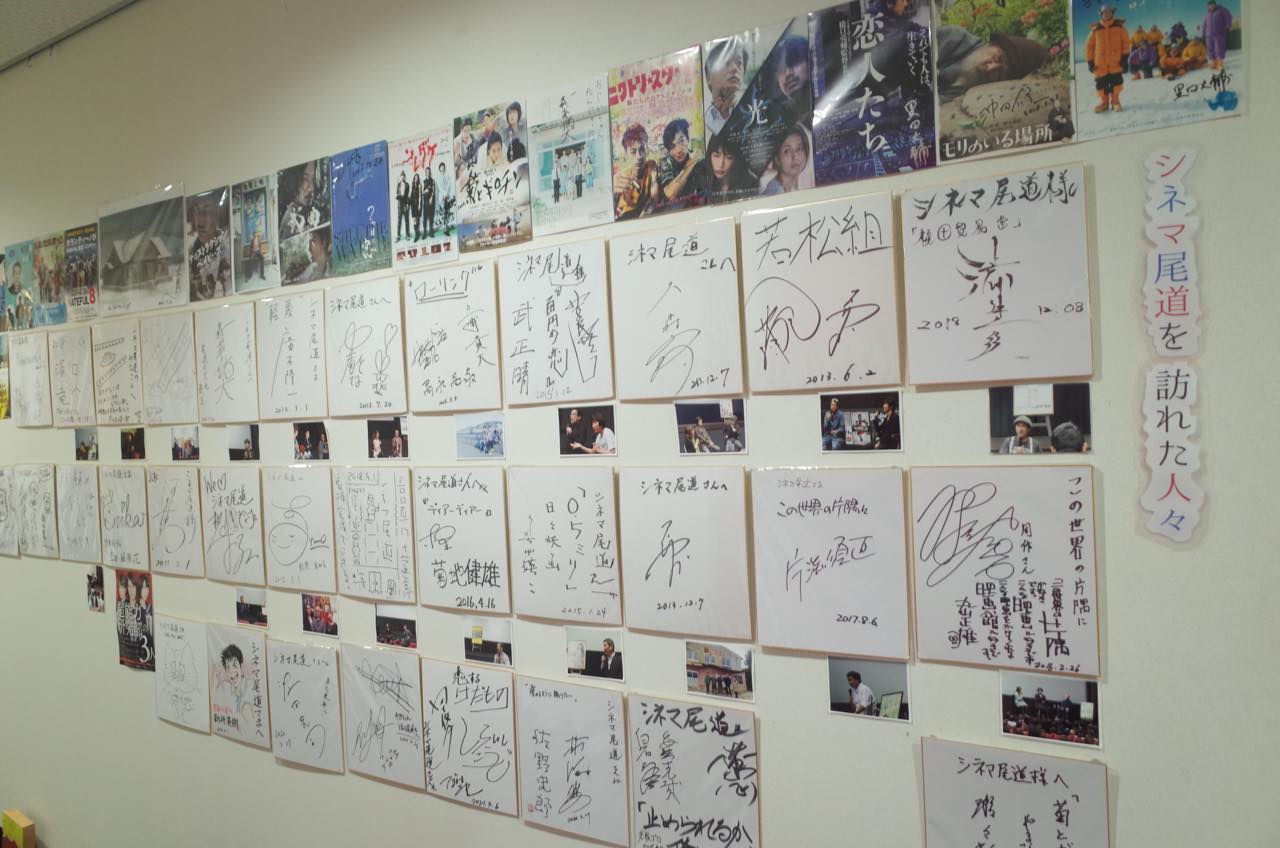
Cinema Onomichi seems to be a place that attracts creators and makes them want to come back. Indeed, one of the reasons we ourselves were drawn to Onomichi was Cinema Onomichi, and we are eager to visit again to see Kawamoto, who loves Onomichi dearly.
The Potential of Local Cinemas Felt through “Backlight”
Meeting Ren Sudo, the director of the currently showing “Backlight,” was a delightful event for her
She first met at the stage greeting for Sudo’s starring film “Wonder Wall Theater Edition.” Although Sudo only appeared as an actor, he loved the work as if it were a part of his own body, which greatly impressed her as a fellow filmmaker.
“Through subsequent discussion events, I learned that he has a tremendous passion for cinemas and movies, and I grew very fond of him. Then he told me he wanted to make a movie in Onomichi, and I was thrilled at the prospect of working together again.”
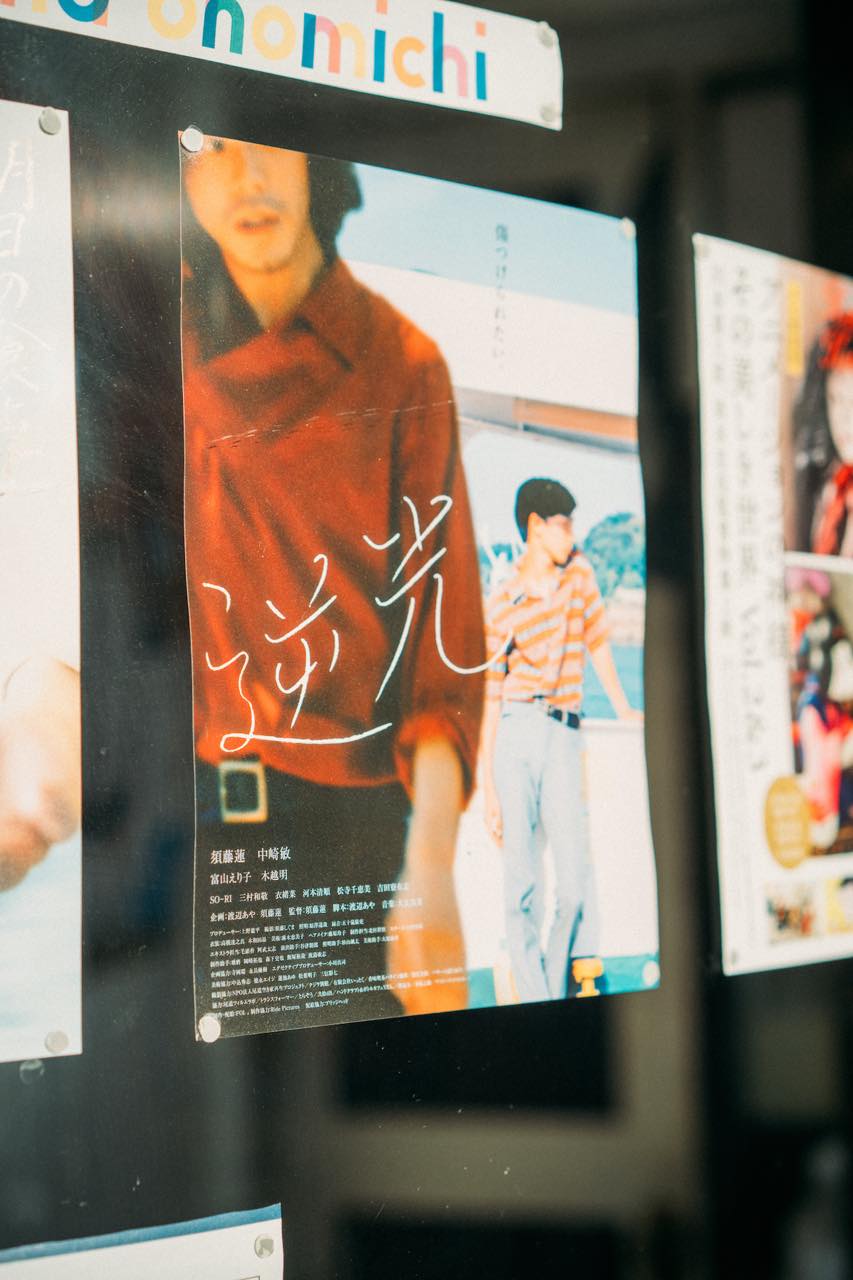
According to Director Sudo, meeting various people in Onomichi expanded the scope of his production. Many people were willing to help him because they resonated with his deep love for Onomichi.
“First of all, just the fact that a young man is making a movie in Onomichi is cause for celebration. Everyone was as happy as if their own child had been born. Plus, Director Sudo has such a wonderful character that everyone likes him once they meet him. He’s truly a good young man…”
After the release, Director Sudo’s daily active promotion efforts were mostly hands-off for Kawamoto.
“He’s promoting the film in various places, even going to meet the old folks on the islands, like he’s running an election campaign.”
Being hands-off, the stories I hear are all the more delightful.
“I can really feel that the local people are genuinely happy that a new movie was made in Onomichi.”
Even for Onomichi, a city of movies, it seems this is the first time the town has rallied so extensively to support a film.
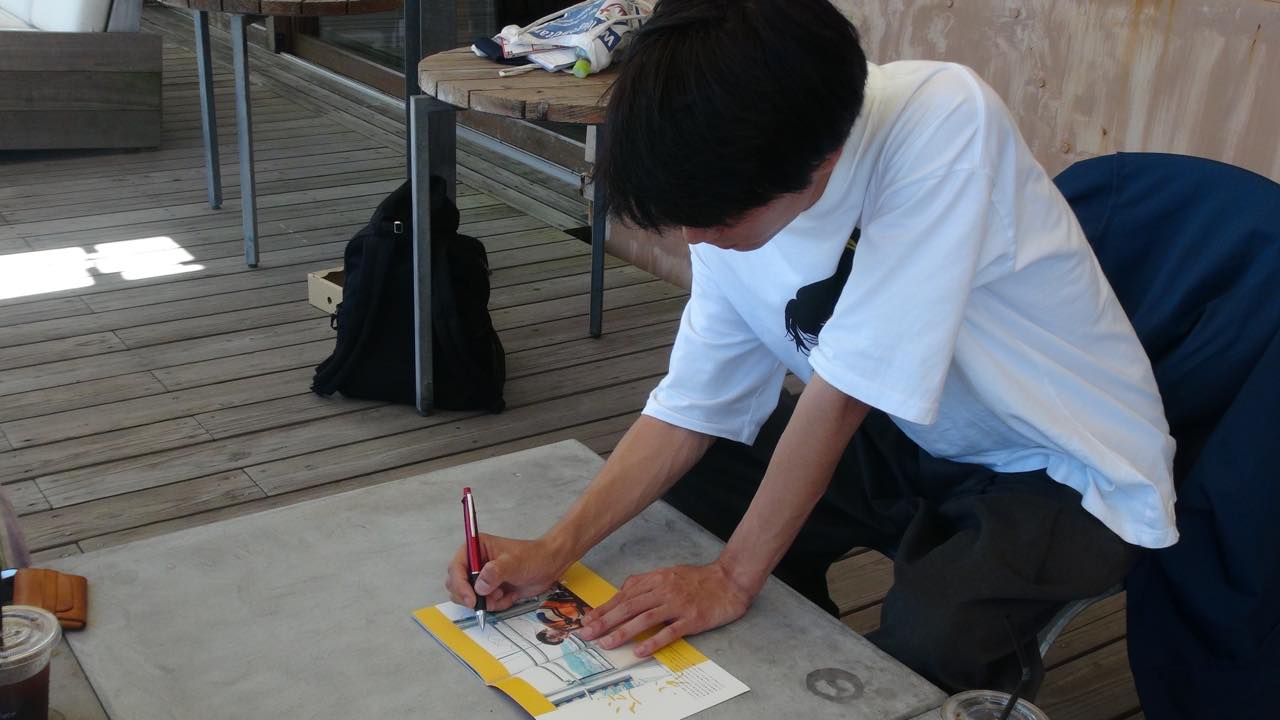
“I think it’s the first time, even including works by Directors Ozu and Obayashi. There were people who participated as extras, but there wasn’t much interaction with the townspeople. This is the first time the filmmakers themselves are going out and promoting the film, asking people to watch it. I think that’s something only an independent production can do. The bigger the movie, the more distribution companies, production companies, and PR firms get involved. They can’t carry out such heartfelt promotion. Director Sudo sees value in these activities that money can’t buy. He promotes the film himself in various places, interacting with the local people, and it’s very interesting.”
This style is new in the Japanese film industry and could be said to hit the mark.
“I think every director should try the ‘Ren Sudo Method’ in a workshop at least once. It could greatly change the way Japanese film culture operates. Of course, having PR companies in the commercial realm is a wonderful aspect of the culture, but learning about the fundamental ways of making movies and such is also very meaningful.”
Kawamoto herself found parts of it stimulating.
“I believe our role is to unearth and screen the films that local people want to see, so seeing Director Sudo’s approach made me reconsider the significance of local cinemas.”
Cinema Onomichi Focuses on the Local Community
Cinema Onomichi receives many enthusiastic requests from filmmakers who want their movies screened. Kawamoto personally previews and decides the lineup.
“This is a place where locals pay to watch movies, so I think about whether they really want this film and how it resonates with them during the preview. There are movies that are really good, but they feel ‘distant.’ The key is whether it’s a film that the people of Onomichi want to see. Watching the film, I imagine whether people will come to see it. If I can’t picture that at all or don’t know how to promote it in this town, we turn it down, no matter how great the film is.”
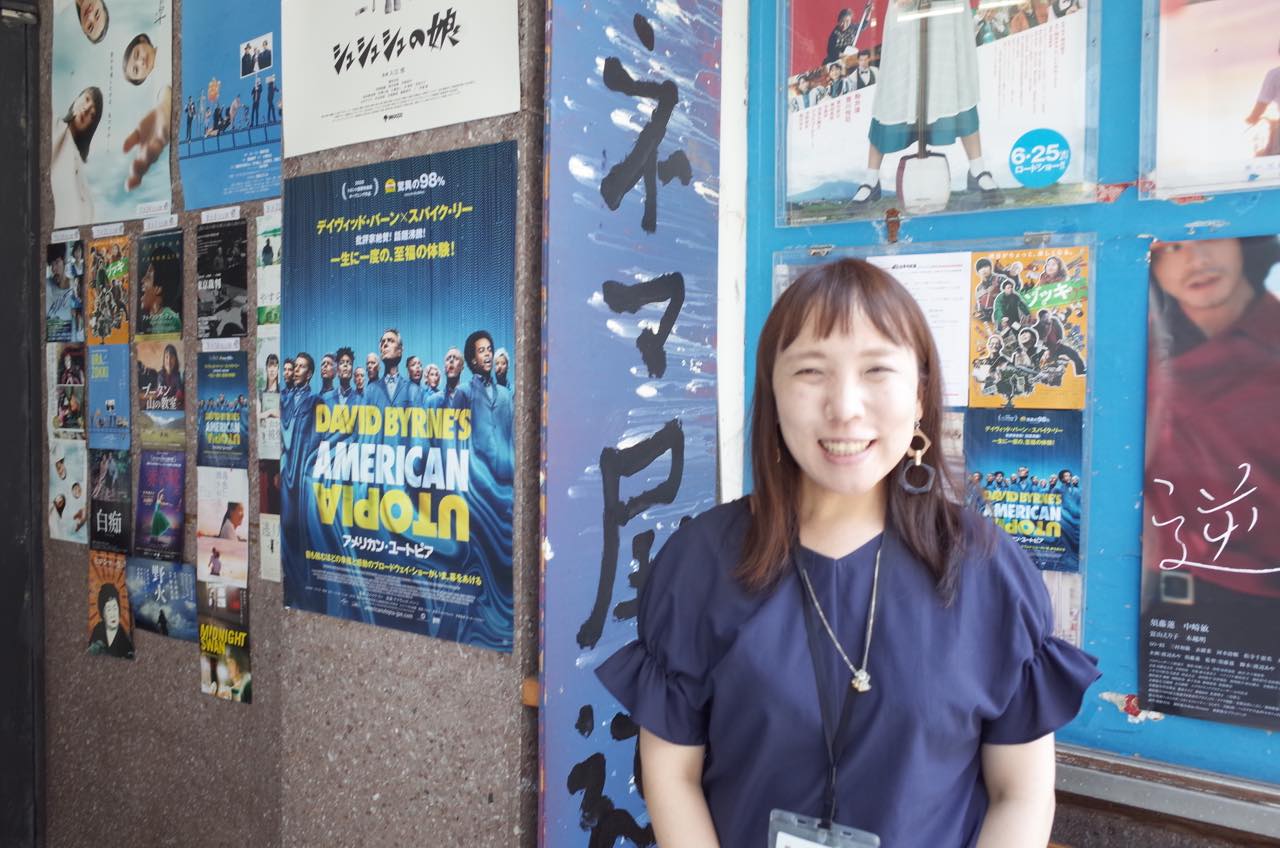
I simply admire the unwavering core and strong passion. The phenomenon of creative individuals being drawn to Onomichi due to its energetic atmosphere seems interconnected. This is precisely where Onomichi’s charm lies.
You can’t fully experience it by just breezing through the typical “tourist spots.” The true essence of Onomichi can be deeply experienced through a long-term stay, watching movies leisurely, and communicating with the locals. “Watching movies and talking to people” can surely be done in Tokyo too. But what lies beyond are highly passionate people, places, and activities. That becomes the town’s energy, which attracts us.
Special Thanks to: Cinema Onomichi
Interview & Writing: Mio Inagaki (Harumari TOKYO)
Cinema Onomichi
6-2 Higashigosho-cho, Onomichi City, Hiroshima Prefecture
WEB : http://cinemaonomichi.com









